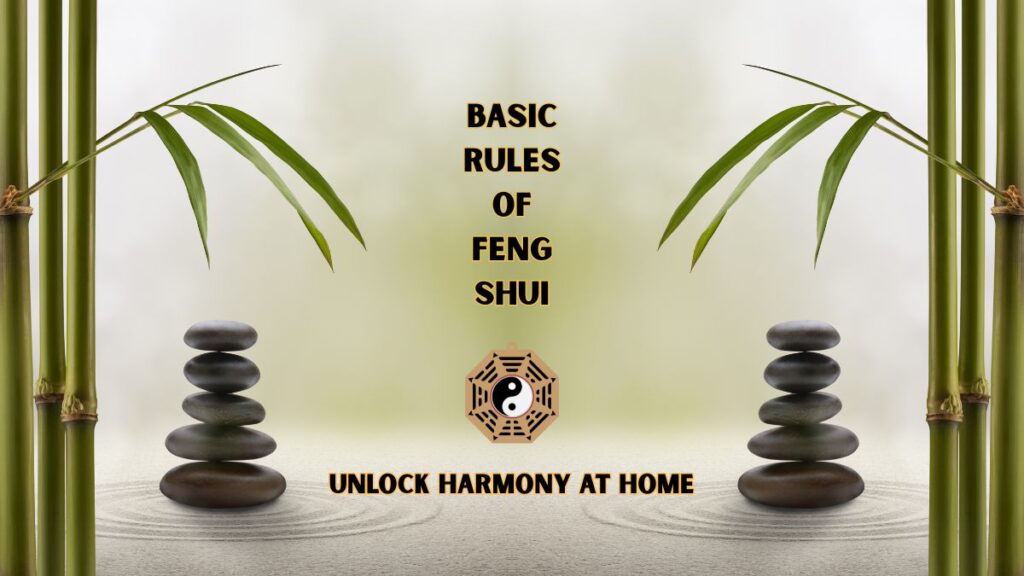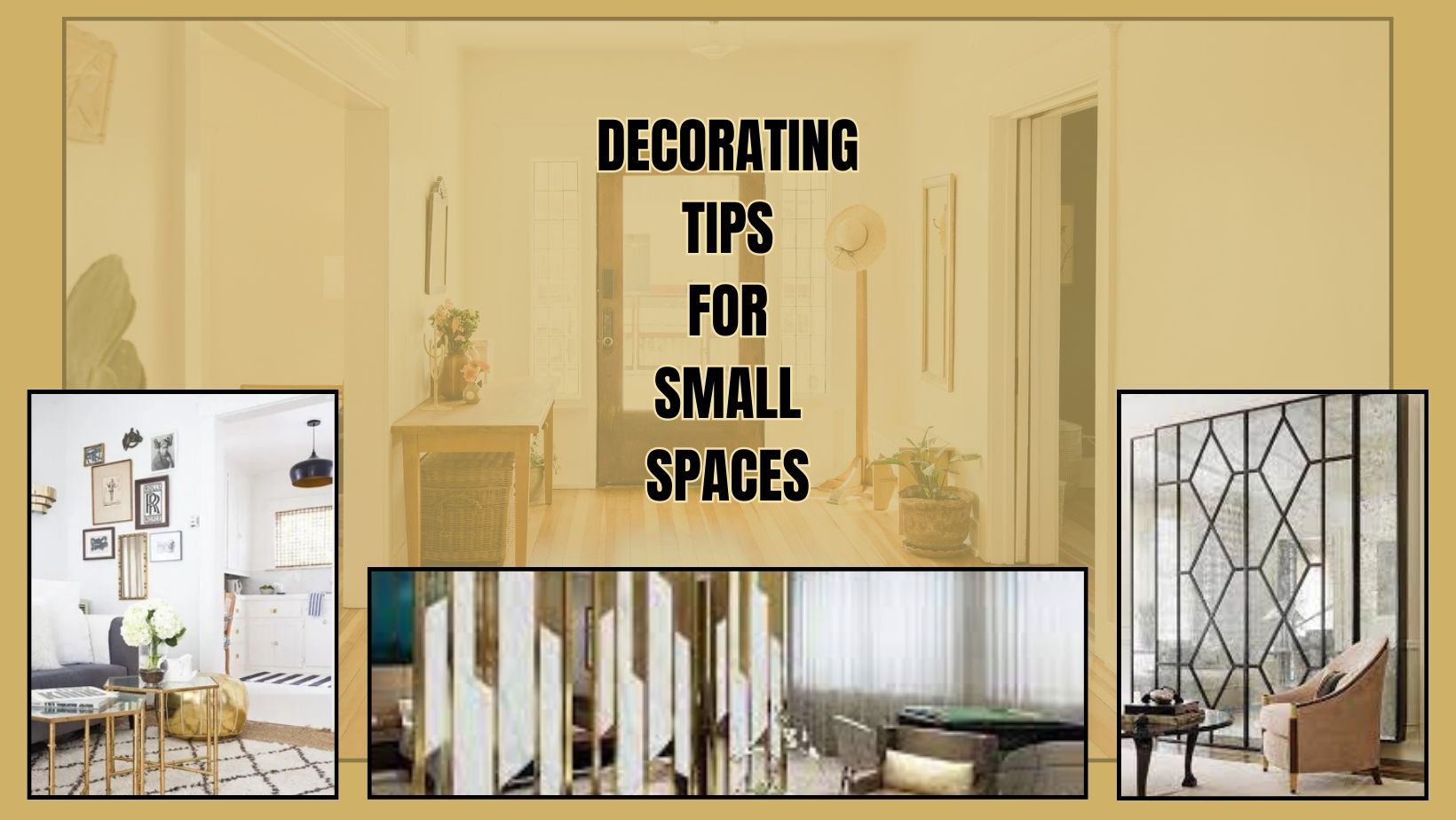Feng Shui is the ancient Chinese art of creating balance. It focuses on harmonizing energy in your surroundings to promote well-being.
Understanding the basic rules of Feng Shui can improve your life. This practice is rooted in the belief that your environment affects your energy, mood, and success. By arranging spaces thoughtfully, you can encourage positive energy flow and reduce obstacles in daily life.
Whether it’s your home, office, or garden, small changes can create a big difference. From furniture placement to color selection, these principles are simple yet impactful. In this blog, we’ll explore the foundational rules of Feng Shui. These guidelines can help you design spaces that feel calm, inviting, and balanced. Ready to align your environment with positive energy? Let’s dive in!
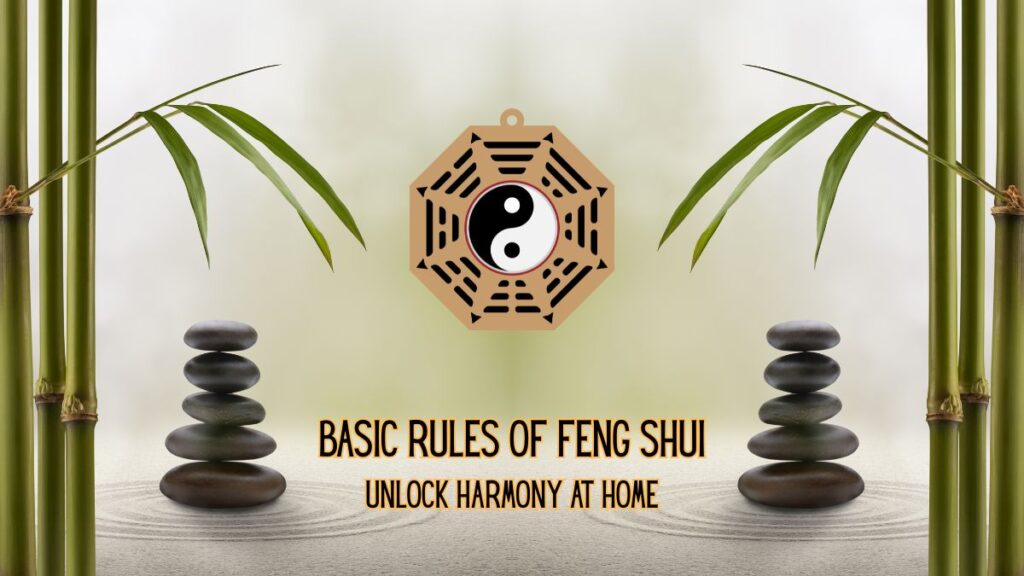
Related Article: Feng Shui Living Room Rules: Transform Your Space Today
Introduction To Feng Shui
Feng Shui is more than just an arrangement of furniture or a splash of color in your home. It’s an ancient Chinese practice designed to bring harmony between you and your environment. By understanding its basic principles, you can create a space that feels balanced, vibrant, and supportive of your well-being.
What Is Feng Shui?
Feng Shui, which translates to “wind” and “water,” is all about balance. It’s a practice that focuses on aligning your surroundings with natural energy forces to promote health, happiness, and prosperity.
Think of it as designing your living or working space in a way that improves how energy flows through it. It’s not about superstition but rather about creating an intentional, thoughtful environment. For example, placing your bed in a position where you feel secure and calm can directly improve your sleep quality.
Feng Shui isn’t just for homes—it applies to offices, gardens, and even your desk setup. The idea is to create a space that supports the life you want to live. Are you making space for what you truly want?
Importance Of Energy Flow
In Feng Shui, energy flow—or “Chi”—is everything. If energy gets stuck in your home, it can leave you feeling stagnant or weighed down. On the other hand, a free-flowing Chi can create a sense of ease and inspiration in your daily life.
Imagine walking into a room where clutter blocks the door and furniture feels crammed. It feels heavy, right? Now think of a room where everything feels open and inviting. That’s the difference energy flow makes.
Here’s a quick tip: start by decluttering. Let go of items you don’t love or use, and you’ll immediately feel a shift in the energy of your space. What’s one area in your home where you could start clearing today?

Credit: www.pinterest.com
Related Article: Feng Shui Bedroom Rules: Transform Your Sleep & Energy
Choosing The Right Colors
Choosing the right colors is a fundamental step in Feng Shui. Colors affect energy flow in your space. They also influence your emotions and overall well-being. Selecting harmonious colors can create balance and bring positive energy into your home. Let’s explore how colors impact Feng Shui and how to balance them effectively.
Colors And Their Impact
Each color carries its own energy and meaning in Feng Shui. Red symbolizes passion and energy. Blue brings calmness and promotes relaxation. Green represents growth and vitality, while yellow encourages happiness and warmth. Use these colors thoughtfully to align with your goals and the energy you want to cultivate.
Consider the purpose of each room before deciding on colors. Warm tones like red and orange suit energetic spaces like the living room. Cool tones like blue and green work well in bedrooms or study areas. Remember, colors should enhance the function of the space, not overwhelm it.
Balancing Yin And Yang
Feng Shui is about balancing yin and yang energies. Yin represents calm, while yang symbolizes activity. Colors play a crucial role in maintaining this balance. Light and muted colors like pastels or white bring yin energy to a room. Bright and bold colors like red or yellow introduce yang energy.
Use darker shades for quiet spaces like bedrooms or meditation areas. Add brighter colors to active spaces like kitchens or home offices. Avoid using too much of one color, as it can disrupt harmony. Strive for a mix that complements the room’s purpose and energy needs.
Arranging Furniture For Harmony
Arranging furniture with Feng Shui principles can transform your home into a space of harmony and balance. How you position your sofa, bed, or desk isn’t just about aesthetics—it directly impacts the flow of energy, also known as “Chi,” in your surroundings. Have you ever felt uneasy in a room and couldn’t quite pinpoint why? It might be the furniture layout disrupting energy flow.
Placement Principles
The way you place your furniture matters. Start by ensuring you have a commanding position for key pieces like your bed, desk, or sofa. The “commanding position” means you can see the door without being directly in line with it.
For example, your bed should ideally be placed diagonally from the bedroom door, allowing you to feel safe and secure while resting. Similarly, desks should face the entrance so you feel in control while working.
Think about balance. If one side of your living room feels heavier due to bulky furniture, shift smaller pieces to the opposite side. This creates visual and energetic equilibrium.
Avoiding Clutter
Clutter disrupts harmony in Feng Shui. A crowded room can block the flow of positive energy and leave you feeling overwhelmed. Take a moment to look around—are there items you haven’t touched in months?
Keep pathways clear. If you’re constantly squeezing past chairs or dodging coffee tables, it’s time to rethink your layout. Furniture should allow easy movement, not act as an obstacle course.
Make it a habit to declutter weekly. Start small, like clearing out one drawer or shelf. You’ll be amazed at how much lighter your space—and your mind—feels.
So, what’s one piece of furniture or décor you could rearrange today to create more harmony in your space?
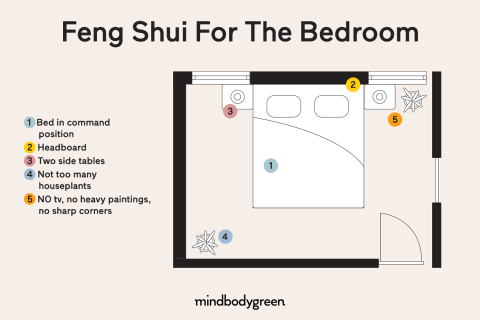
Credit: www.mindbodygreen.com
Enhancing Natural Light
Natural light is a vital part of Feng Shui. It energizes your space, uplifts your mood, and sets the tone for harmony in your home. Let’s talk about simple ways to enhance natural light and attract positive energy into your space.
Windows And Mirrors
Clean windows are a must in Feng Shui. Dust and dirt on windows block sunlight and prevent energy from flowing freely into your home. Set a routine to clean them regularly—your space will feel instantly brighter.
Position mirrors strategically to amplify natural light. Place a mirror across from a window to reflect sunlight deeper into the room. Avoid placing mirrors directly opposite your bed, as it can disrupt restful energy.
Do you have heavy curtains? Swap them for sheer ones to let in more light while maintaining privacy. Small changes like these can create a huge difference in how your home feels.
Boosting Positive Energy
Natural light doesn’t just brighten a room; it also boosts positive energy. A dark, dim room can feel heavy and stagnant, while a sunlit space feels alive and welcoming. Open your blinds every morning and let the sunlight pour in—it’s a simple habit with big rewards.
Think about the furniture placement in your home. Are bulky pieces blocking light from entering the room? Rearrange them to clear the path for sunlight to flow freely.
Do you work from home? Set up your desk near a window to soak in natural light as you work. It boosts productivity and keeps you connected to the natural rhythms of the day.
Take a moment to assess your space. What small steps can you take today to let in more light and create a brighter, more harmonious environment? Start with one window, one mirror, or one room, and notice the difference it makes.
Incorporating Plants And Nature
Feng Shui emphasizes harmony between your living space and nature. Plants are vital for this balance. They purify the air, uplift energy, and create a calming atmosphere. By integrating plants indoors, you bring life and positive energy into your home. Choosing the right plants is key to enhancing your Feng Shui practice.
Benefits Of Indoor Plants
Indoor plants improve air quality by filtering toxins and releasing oxygen. Their presence reduces stress and promotes a peaceful environment. They also act as natural humidifiers, balancing indoor air moisture. Greenery enhances creativity and focus, making it ideal for workspaces. Plants create a connection with nature, fostering a sense of grounding and well-being.
Selecting The Right Plants
Not all plants align with Feng Shui principles. Opt for plants with soft, rounded leaves to encourage positive energy. Avoid spiky or sharp-leaved plants as they may create tension. Bamboo is a popular choice, symbolizing growth and resilience. Money plants are believed to attract wealth and prosperity. Peace lilies promote harmony and purify the air effectively.
Place plants in areas needing an energy boost, like corners or dull spaces. Ensure they receive proper sunlight and care to maintain their vitality. Healthy, thriving plants radiate positive energy into your home. Avoid keeping dead or withered plants as they can disrupt the energy flow.
Creating A Peaceful Bedroom
Creating a peaceful bedroom is essential for maintaining a balanced and harmonious life. Your bedroom is your sanctuary—where you rest, rejuvenate, and recharge. When designed with Feng Shui principles, it can promote better sleep, reduce stress, and create positive energy.
Bed Placement Tips
The placement of your bed is crucial for good Feng Shui. Your bed should have a clear view of the door but not be directly in line with it. This is known as the “commanding position,” and it helps you feel secure and in control.
Avoid placing your bed under a window or against a shared wall with noisy spaces like a bathroom or kitchen. These arrangements can disrupt your energy flow and sleep quality.
Make sure there’s space on both sides of the bed for easy access. If possible, add two nightstands to maintain balance and symmetry. This setup promotes harmony in relationships.
Soothing Decor Choices
Your bedroom decor should encourage relaxation and tranquility. Choose soft, muted colors like pastel blues, greens, or earthy tones for walls and bedding. These colors are calming and promote restful sleep.
Keep your bedroom clutter-free. Items like piles of clothes or unnecessary furniture can block positive energy. Use storage solutions to ensure the space feels open and inviting.
Decorate with minimal yet meaningful pieces. Add artwork that evokes peaceful feelings, but avoid overly dramatic or busy designs. Consider placing plants like lavender or peace lilies to enhance the soothing atmosphere and improve air quality.
Does your bedroom feel like a retreat or just another room? Take a moment to evaluate your space and make adjustments that align with these Feng Shui principles. Small changes can make a big difference in creating the restful haven you deserve.
Utilizing The Bagua Map
Feng Shui is all about creating harmony in your living space. One of the most practical tools to achieve this is the Bagua Map. This map acts as a guide to help you organize your home or workspace in a way that aligns with your intentions and goals.
Understanding The Zones
The Bagua Map divides your space into nine zones, each connected to a specific area of your life. These zones include wealth, health, relationships, and more. Think of them as energetic areas that influence different aspects of your well-being.
To use the Bagua Map, align it with your floor plan, placing the career zone at your front door. From there, you can identify where each life area falls in your home. For example, your living room might correspond to the family zone, while your kitchen could fall under health and nourishment.
Take a moment to reflect on these zones. Are they cluttered, dark, or neglected? The state of each area can mirror what’s happening in that part of your life.
Aligning Spaces With Goals
Once you’ve identified the zones, think about your goals. Do you want to improve your career? Strengthen your relationships? Use the corresponding zone to support your intentions.
For instance, if you’re focusing on career growth, enhance the career zone near your front door. Add elements like a water feature, a mirror, or symbols of your aspirations. Simple changes like decluttering this area or placing a small plant can make a big difference.
Ask yourself: Does your space reflect what you want to attract? If not, make small adjustments to bring it into alignment. Feng Shui is about intention, so let your space tell the story of your dreams.
Remember, the Bagua Map isn’t just about physical changes—it’s about creating a space that inspires and uplifts you. What’s one change you can make today to align your home with your goals?
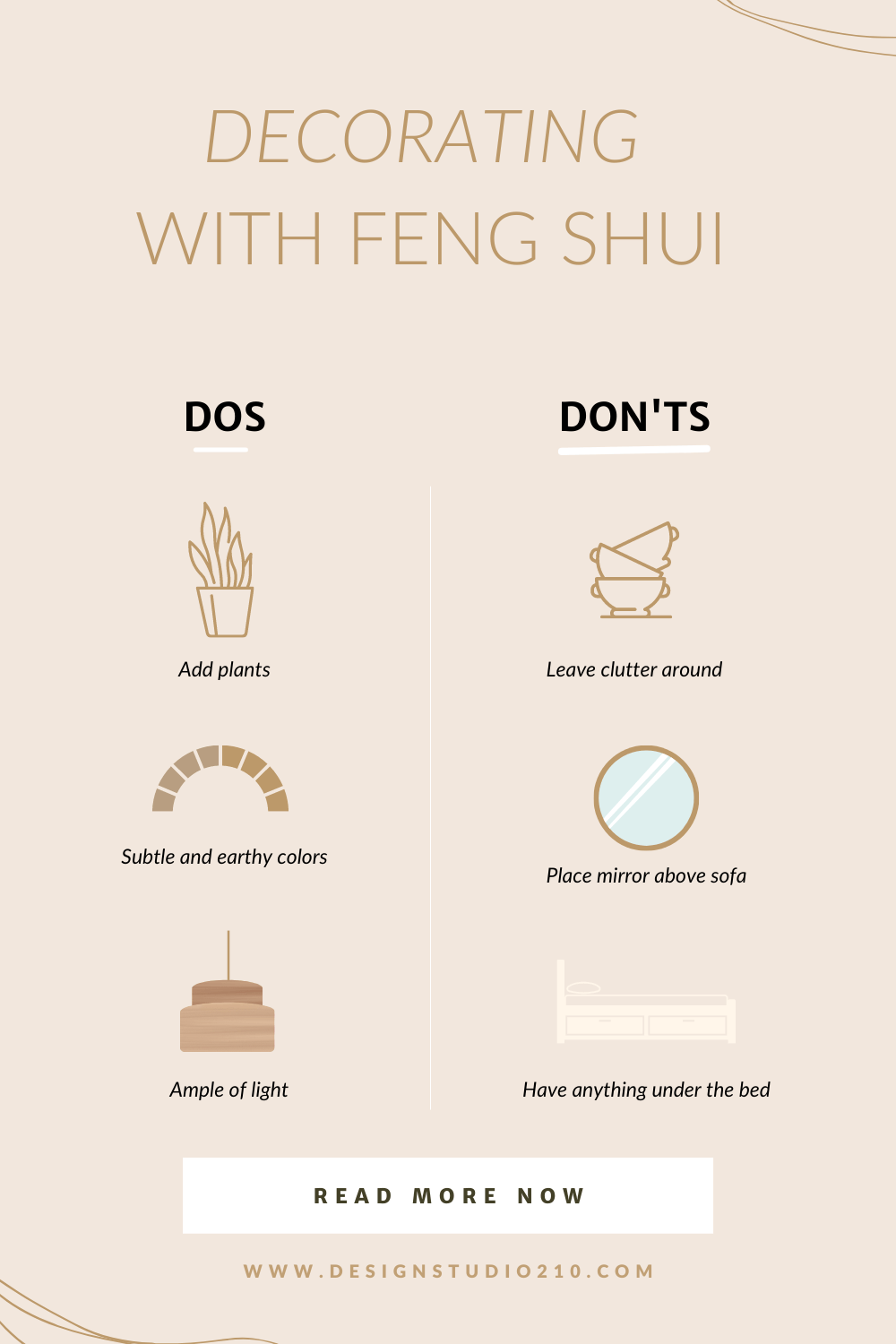
Credit: www.designstudio210.com
Maintaining Balance And Flow
Feng Shui is about creating harmony in your living spaces. A balanced environment promotes positive energy and well-being. To maintain balance and flow, focus on the movement of energy in your home. Energy, or “Chi,” should circulate freely without blockages. Following some simple practices can help keep this energy flowing smoothly.
Regular Energy Checks
Energy in your home can stagnate over time. Regularly assess your space to ensure it feels fresh and inviting. Clutter blocks energy flow, so remove unnecessary items. Pay attention to corners, as they often trap stagnant energy. Open windows to let fresh air circulate and revitalize the space.
Observe how each room feels. If a space feels heavy, it may need adjustment. Rearrange furniture to create open pathways for energy. Cleaning surfaces also helps refresh the energy around you. Make energy checks a part of your routine to maintain balance.
Adapting To Change
Life changes can impact the energy in your home. Adjust your space to reflect your current needs. For example, add calming elements during stressful times. Introduce energizing colors or plants when you need motivation. Your home should evolve with you.
Even small changes can make a big difference. Moving a piece of furniture or adding new décor can shift the energy. Be mindful of how these adjustments affect the flow of Chi. Regularly updating your space ensures it aligns with your life and goals.
Conclusion
Creating harmony in your space with Feng Shui is simple. Start small and focus on balance. Clear clutter to let energy flow freely. Arrange furniture thoughtfully to invite positive vibes. Use natural light and colors that feel calming. Incorporate plants for freshness and growth.
These basic rules can improve your surroundings and mood. Small changes can make a big difference over time. Stay mindful of the energy around you. A balanced space can lead to a balanced life. Keep practicing, and enjoy the peaceful atmosphere you create.
Related Article: Feng Shui Tips for Beginners: Create Harmonious Spaces

